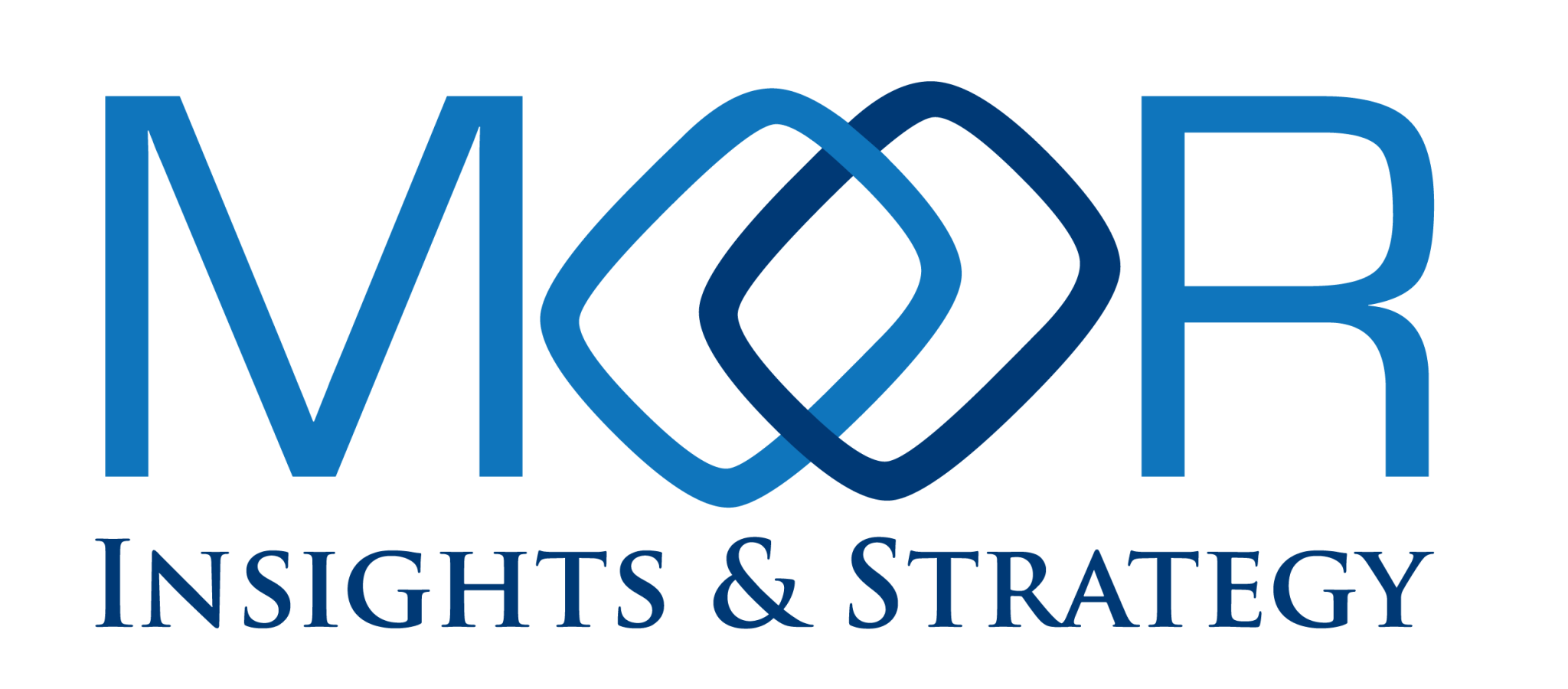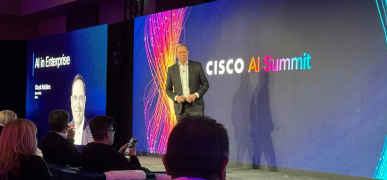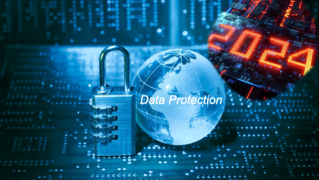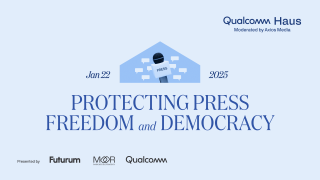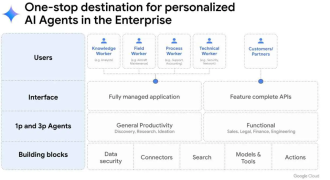Photo 314407922 | Ai Hr © Benzoix | Dreamstime.com
Making work life better is the brand promise of Dayforce (formerly Ceridian), as well as how the company measures itself, according to CEO David Ossip. In a borderless, always-on world where the lines between work and life are often blurred, Dayforce aims to help companies navigate the complexities of human capital management.
HCM is a critical aspect of any organization, and technology has significantly transformed it in recent years. Technology is complex, as are people. Combine the two, and you end up with a complicated acronym soup—not just HCM but also HRM, HRD, HRIS, HRMS, EX, and more. For simplicity, I lump all of these together as “people tech.”
The people tech stack has grown exponentially in the past decade to span the whole employment lifecycle. Ceridian acquired the Dayforce workforce management software platform in 2012. Since then, the company has added payroll, benefits, HR, talent management, analytics, and HCM functions to its offerings. In the era of AI, Dayforce is now taking each function to a new level of capability to help put people back at the center of people tech.
I recently spent some time with Dayforce’s senior leadership and product teams talking about the company’s AI features and strategy. What I observed is somewhat ironic: While technology solutions aim to simplify the process of enhancing employees’ lives, in practice this means that the more components that are added to the tech stack, the more cumbersome things typically become. Yet by infusing AI into the Dayforce platform, the company has helped the tech to increasingly fade into the background. In other words, the AI allows users to have complete control of the functionality they need without having to fiddle with each tiny aspect of it.
A Brand New Dayforce
So, why the name change? The company formerly known as Ceridian transitioned to the Dayforce name in February. Dayforce was already the brand attached to its platform, and the name by which most customers knew the company. Ossip said that by adopting Dayforce as a unified brand, the company now provides clarity to organizations grappling with workforce complexities and fortifies the unity among employees. This concerted effort helps fulfill the company’s commitment to “make work life better.”
I think the company is smart to focus on a single brand identity that focuses on innovation. It is important to be very clear about the brand and its promise because there are a growing number of seats at the table in technology buying decisions. In other words, what Dayforce offers must be clear to more than the IT folks. Increasingly, chief people officers, CFOs, and even marketers are involved in people tech purchasing. Beyond that, the rebranding also shows good timing, as AI has ushered in a brand-new day for everyone.
AI Has Entered the Chat
Generative AI (GAI) in the HR tech stack reshapes conventional perspectives on work, talent, roles, and skills. According to a recent Harris Poll survey commissioned by Dayforce, 72% of American employees are hopeful that GAI will automate tedious or repetitive tasks and free them up to do more of the work they enjoy.
Dayforce has employed AI and machine learning in the background for decades as part of the underpinning of its platform. Like many companies, Dayforce has now introduced a customer-facing AI assistant, Dayforce Co-Pilot, to boost workplace efficiency. Designed as a “teammate,” Dayforce Co-Pilot automates routine tasks and assists with personnel-focused work such as composing job descriptions, creating personalized learning paths, and generating performance reviews. In many cases, an HR assistant is an entry-point for companies to experiment with GAI use cases. Dayforce sees this “assist, automate, augment” approach as an opportunity to help customers on their AI adoption path when many of them don’t have a solid plan in place.
Dayforce Co-Pilot aims to free managers and leaders from mundane tasks, allowing them to focus on meaningful work, such as coaching employees toward their full potential. It also gives them tools to provide more data-driven personalized support and development opportunities as well as enhanced communication and engagement. I think this is a good thing; most managers aren’t eager to spend their time on tedious paperwork, and most HR people don’t go into HR because they’re excited about dealing with tax calculations or answering the same question about company holidays for the umpteenth time. They want to help people get their jobs done well.
Critical Use Cases for an AI Teammate
One of GAI’s most valuable corporate use cases is to comb through vast knowledge bases to surface needed information. Dayforce users can query the AI assistant about HR needs such as parental leave policies or access to tax forms. Throughout the platform, Dayforce Co-Pilot connects workers to the corporate knowledge base using simple natural language prompts. This saves time for employees at any knowledge level by keeping them from endlessly searching data repositories. For HR professionals, it cuts down on time spent answering questions that could be answered through self-service. With Dayforce HR Service Delivery, when the AI assistant can’t sufficiently answer an employee inquiry, Dayforce Co-Pilot will generate an HR service ticket, escalating the interaction to a human. The escalation data is then used to train the model so it can learn from these interactions.
In the area of compliance, Dayforce Co-Pilot aids employees in understanding and adhering to policies regarding time off, flexible work arrangements, information security, and more. Using AI-powered conversational assistance, Dayforce Co-Pilot guides individuals to the appropriate resources and procedures, ensuring compliance with organizational regulations. For payroll, Dayforce Co-Pilot significantly enhances Dayforce Autonomous Pay and reduces operational risks and errors by identifying and resolving anomalies in the data before the payroll process begins.
Making Data-Driven Connections
Dayforce’s approach to AI deployment goes beyond infusing GAI assistants and chatbots into existing solutions. Using Dayforce Co-Pilot, the company set out to build a more intelligent Dayforce platform from stem to stern. In HR and HCM, AI can play a tremendous role in streamlining operations. It can automate routine tasks, enhance candidate screening, improve employee onboarding, personalize learning and development, and provide predictive analytics for workforce planning. This can help companies reduce labor costs, remove biases from hiring and review processes, and identify employee engagement and burnout. These capabilities free up HR professionals for more strategic work and drive a more efficient, data-driven approach to human capital management.
Dayforce also has AI features for career-pathing and development. The Dayforce Skills Engine uses employees’ personal career data to recommend growth opportunities specific to the individual. Career Explorer helps fast track employees’ career growth to help companies build a more agile, resilient workforce.
“The Dayforce platform can help employers better understand employees’ skills and aptitudes. This knowledge can help guide them to suitable learning paths, mentorships, and projects,” said Joe Korngiebel, Dayforce’s chief product and technology officer. “When companies connect the dots within talent acquisition and talent management, that can improve many different outcomes, whether we’re talking about hiring, employee development, succession planning, or employee engagement.”
Overcoming Adoption Barriers with AI Ethics Principles
A recent study from the IBM Institute for Business Value shows that the most significant barriers to GAI adoption in companies are concerns around data lineage and provenance (61%), data security challenges (57%), and regulation and compliance constraints (53%). Dayforce addresses these concerns through its AI Framework; this equips the company with a deliberate and responsible approach to AI framed by its AI Ethics Principles and permission-based data usage. Further security and privacy protections are created via the use of single-tenant datasets for each customer.
Dayforce’s permission-based approach to AI must be both powerful and accountable. For a software company whose users handle massive amounts of personally identifiable information, analyzing and effectively controlling the associated risks are paramount. AI models must be trained with the right datasets, and all data must be used and maintained securely.
The effectiveness of AI training for these use cases is largely dependent on the caliber and inclusivity of the data employed. “The data used to train the technology must be high-quality, diverse, and representative of the workforces we serve,” Korngiebel said.
My Analyst Viewpoint
Recent innovations from Dayforce highlight the company’s commitment to leveraging AI to improve operational efficiency, all while keeping people at the forefront. Previously recognized primarily for its payroll and tax calculation solutions, Dayforce has expanded its offerings to encompass the entire employee lifecycle, supported by a robust ecosystem of partners.
Talent intelligence is increasingly important in organizations as companies realize that the more data they have, the better. People insights are indeed business insights, and companies that regard employees as their most significant asset will perform better than others. As Dayforce advances its AI capabilities and guides customers on their AI journeys, a focus on prioritizing people within processes will yield the greatest benefits.
AI can automate tasks, make finding the appropriate information less time-consuming, and increase productivity. Still, AI should be about more than productivity. It should elevate human ingenuity. When companies focus on AI tools that help employees work smarter, they free up space for the unique value that only humans bring—including creativity, strategic thinking, and the ability to build meaningful connections.
Dayforce’s emphasis on prioritizing the people served by “people tech” is evident. Recognizing that individuals are the driving force behind any organization, Dayforce ensures that its technology enhances the human experience in the workplace. As we move forward, I am eager to observe how Dayforce and the broader HCM industry continue to evolve and embrace AI, ultimately helping to shape the future of employee experience, growth, and retention.
